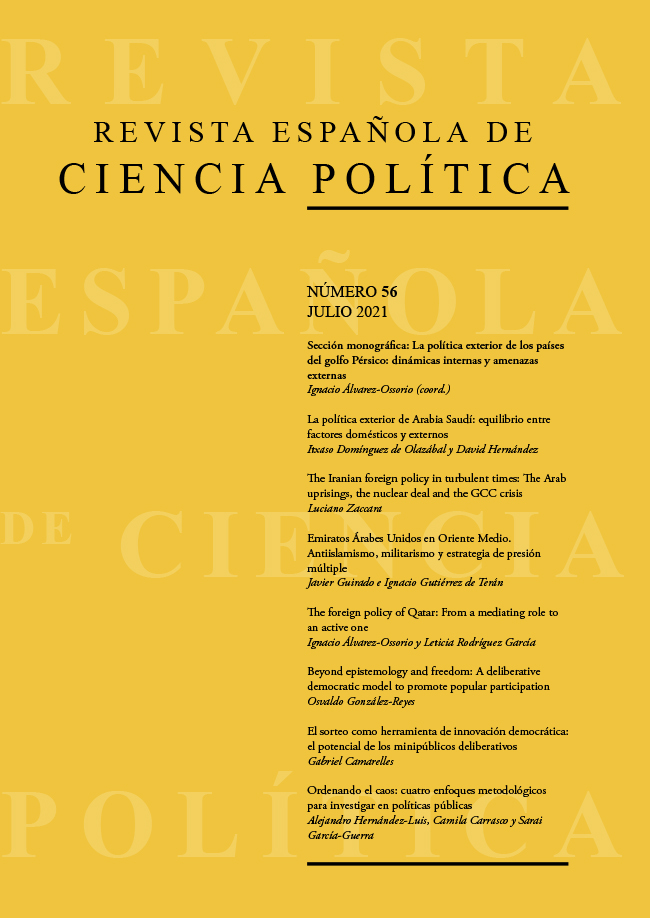The Iranian foreign policy in turbulent times: The Arab uprisings, the nuclear deal and the GCC crisis
DOI:
https://doi.org/10.21308/recp.56.02Palabras clave:
política exterior iraní, análisis de política exterior, acuerdo nuclear iraní, Primavera Árabe, crisis del CCGResumen
Utilizando el marco teórico del análisis de política exterior y el concepto de unidades de decisión autoritativas, este artículo analiza tres casos que requirieron la respuesta iraní: la Primavera Árabe, las negociaciones nucleares y la crisis del CCG de 2017. El artículo argumenta que no ha sido un actor individual, sino la combinación de actores individuales y colectivos los que tomaron las decisiones, conformando las unidades de decisión que diseñaron e implementaron la política exterior. También se sostiene que las decisiones tomadas se alineaban con el objetivo principal de la política exterior iraní, que es la de convertir a Irán en una potencia regional, para lo cual se implementaron diversas variaciones en las estrategias de no alineamiento.
Descargas
Descargas
Publicado
Cómo citar
Número
Sección
Licencia
Derechos de autor 2021 Luciano Zaccara

Esta obra está bajo una licencia internacional Creative Commons Atribución-NoComercial-SinDerivadas 4.0.






